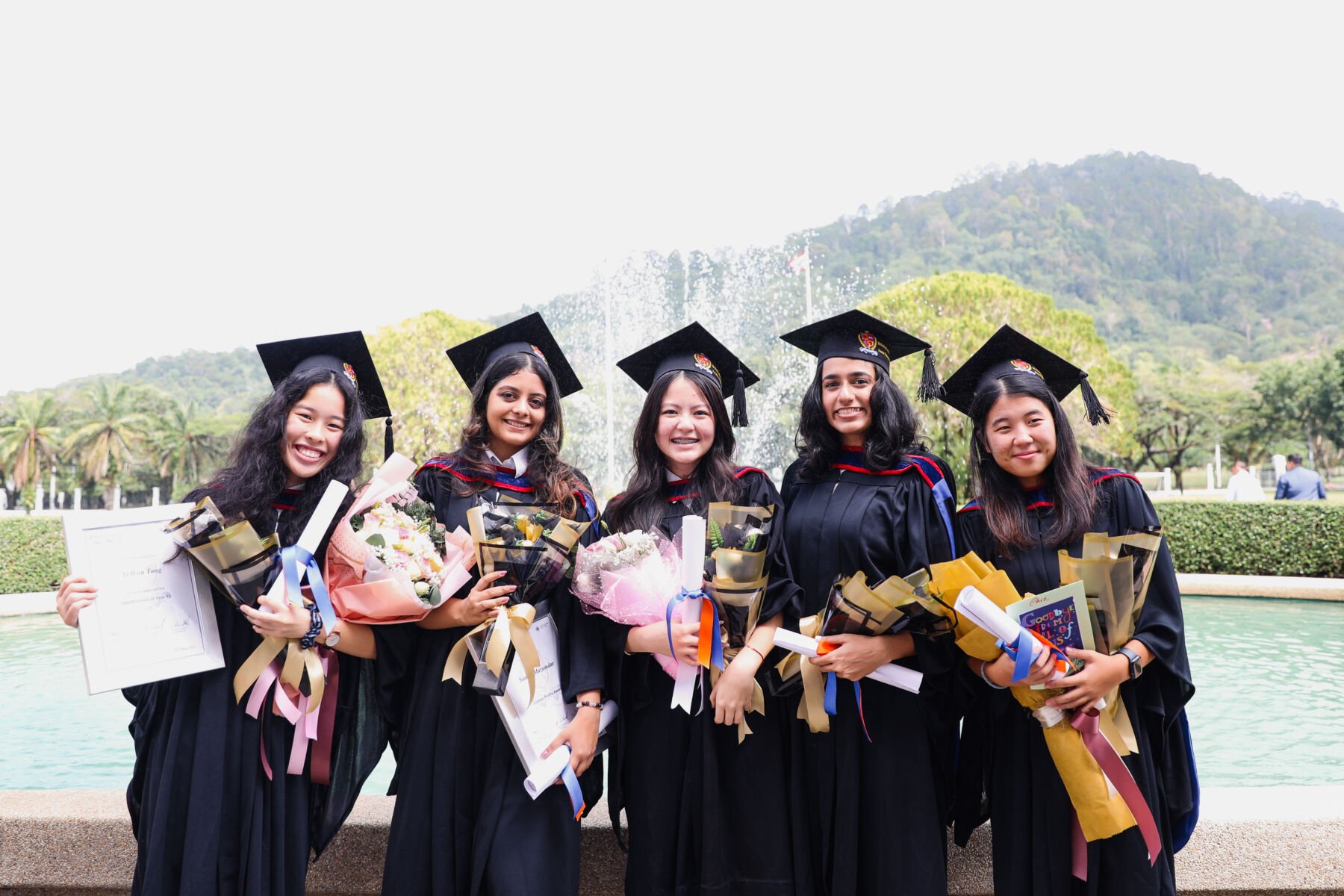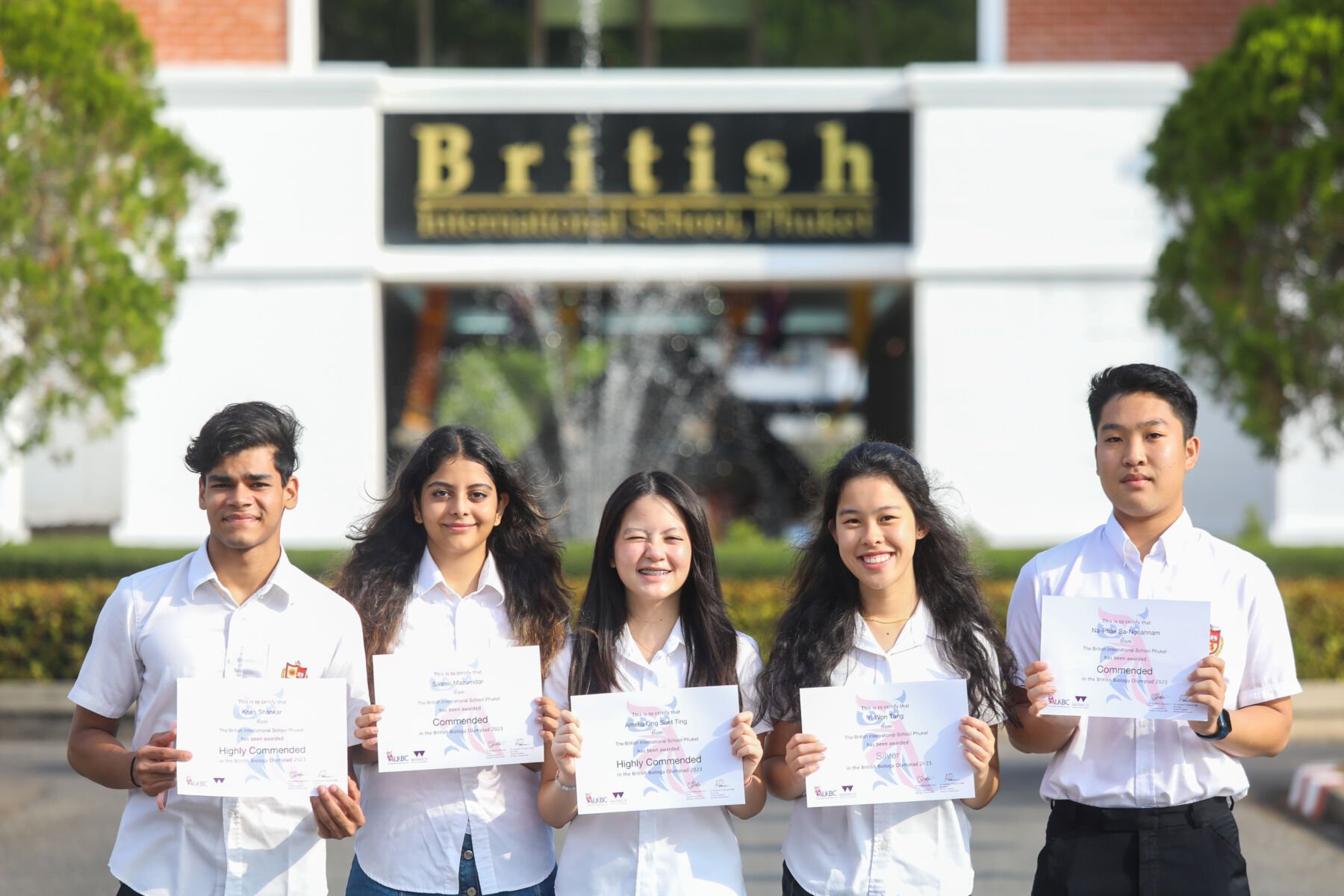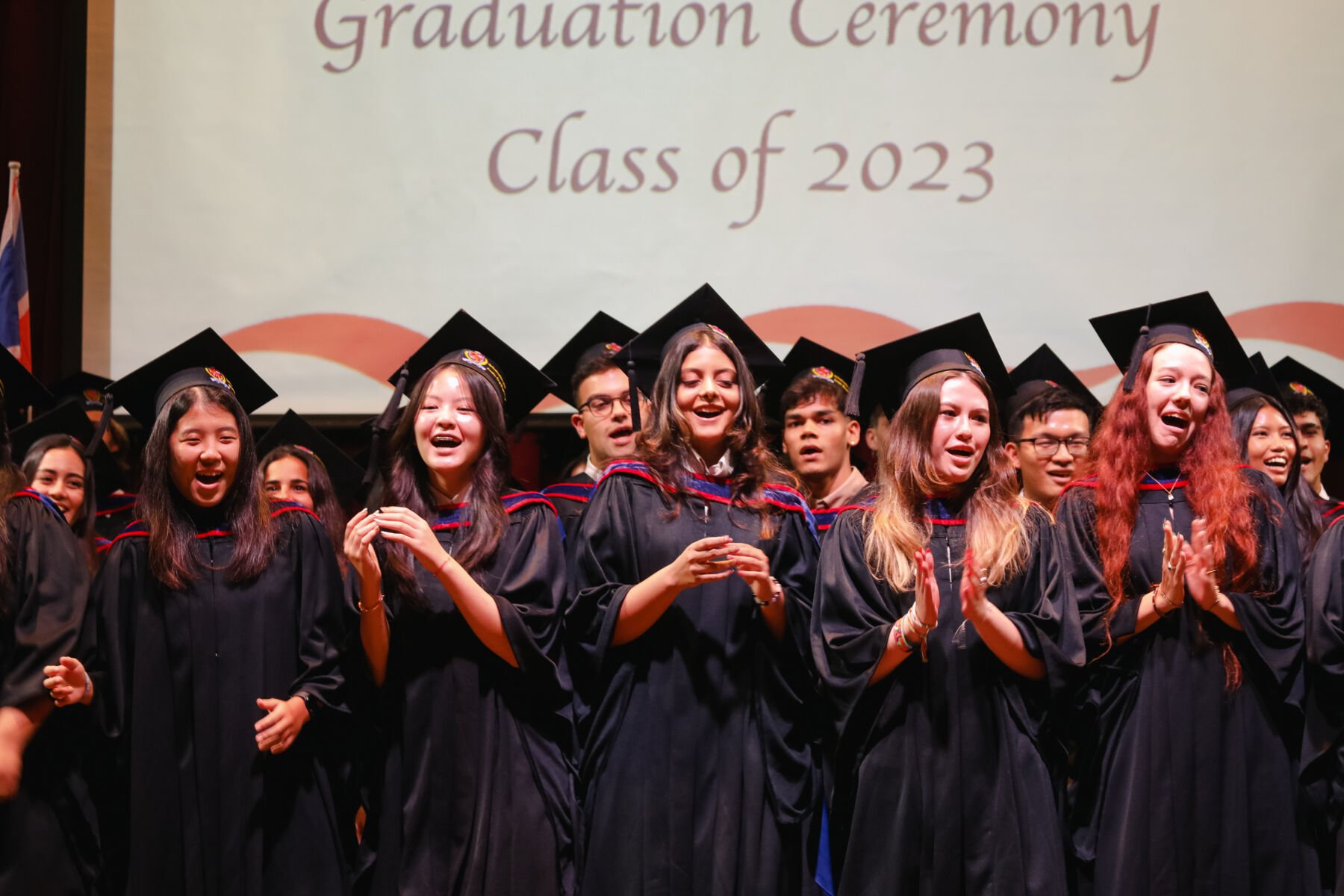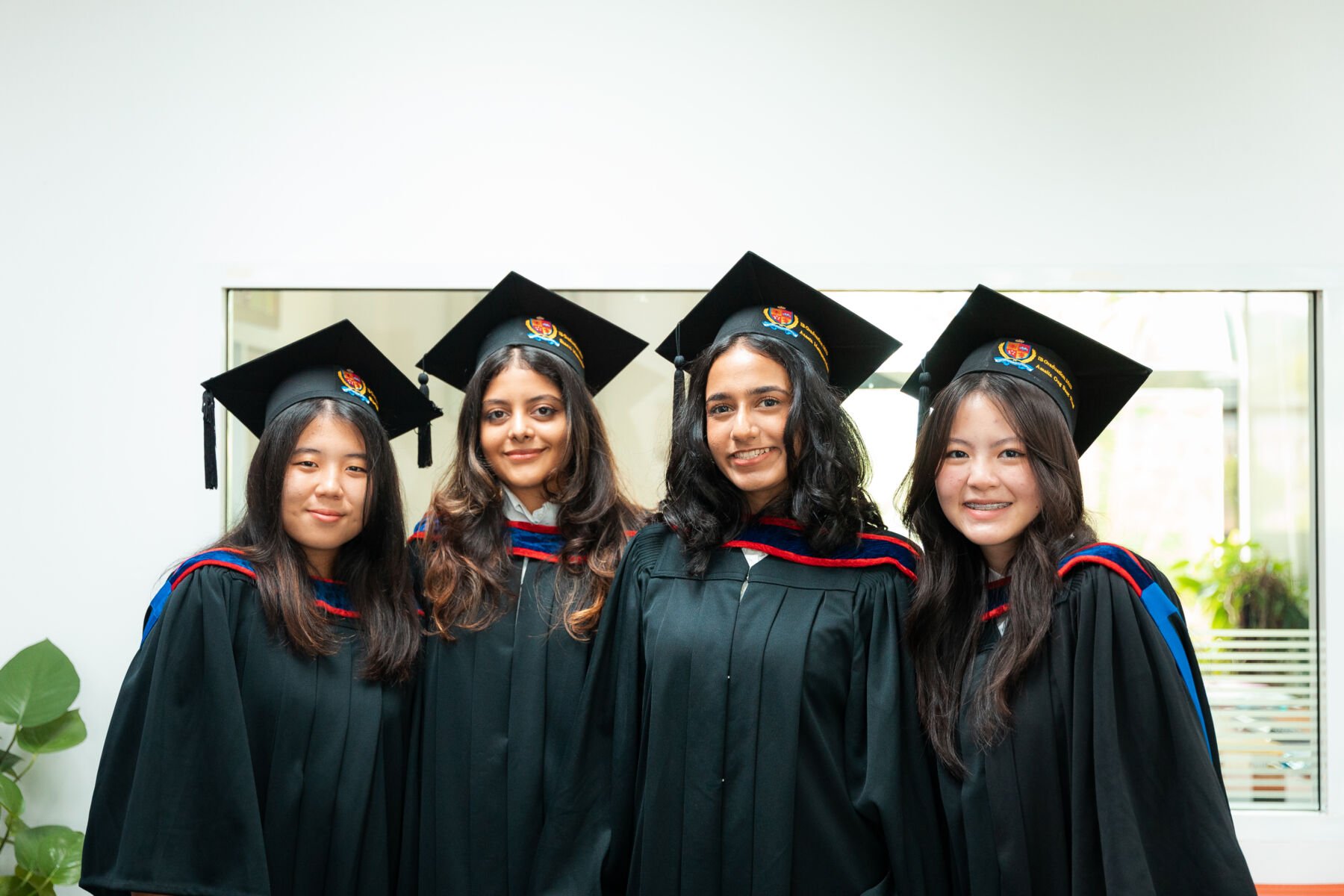How BISP prepares students for the future with its IB Diploma Programme

The British International School, Phuket (BISP) offers a range of academic programmes for its students, but one that truly stands out is the International Baccalaureate (IB) Diploma Programme (DP). Boasting an average 96% pass rate, BISP truly excels in delivering this internationally recognised curriculum.
The IB Diploma is a 2-year programme that challenges students in Year 12 and Year 13 to excel both in their academics and personal growth. It prepares students for success in university and life beyond. Combined with BISP’s mission of inspiring learning, nurturing well-being, and igniting passion, the IB Diploma Programme equips students to reach their full potential and go out in the world as knowledgeable, curious, and empathic problem solvers.
If you’re a student considering the IB Diploma Programme or a parent looking for the best education for your children, you might be wondering how it prepares students for the future. To get a closer look at what the IB Diploma Programme looks like at BISP and what life is like after completing it, we talked to the people who know it best.
What does the IB Diploma Programme look like at BISP?

A typical day for an IB student involves balancing 6 subjects. These include studies in language and literature, language acquisition, individuals and societies, sciences, mathematics, and arts. In addition to academics, the programme also incorporates 3 unique components known as the DP core, which consists of creativity, activity, service (CAS); theory of knowledge (TOK); and the extended essay.
Saanvi Mazumdar, a recent BISP graduate now studying Life Sciences at the University of Toronto, explained that life as an IB student at BISP can be challenging, but also rewarding.
Saanvi described her IB experience as “very holistic,” focusing on how it shaped her academic development while also facilitating personal growth.
“Balancing all these [the 6 subjects and 3 DP core], but also trying to have a social life and getting ready for university, applying for university, all of these aspects, it was definitely hard. But I think the outcome of it was very beneficial,” she said.

Saanvi, originally from India, joined BISP in the 7th grade and took the IB Diploma Programme in the final two years of high school. During her time at BISP, she was also the Head of the Relate Student Leadership Team and a member of the Student Wellbeing team.
Reflecting on her experience, she shared, “I had a very interesting journey, not just academically. I think those two years really helped me grow as a person. I think I really learned a lot about the real world and how we should apply real-world concepts to what we are studying, but also just the way we think and how we can think more outside of the box. Instead of having the mindset of just looking for the answer or getting a solution, it’s like looking for different solutions and having a bigger perspective of how our world works.”
BISP’s unique approach to the IB Diploma Programme
The IB Diploma Programme is a standardised curriculum. This means that it’s the same in all IB schools around the world. However, BISP has a unique approach to implementing the programme.
Jason Perkins, the IB Coordinator at BISP, explains that the programme is contextualised to the school’s geographical setting and the needs of its students. He says, “When it comes to our subject offerings, our recruitment, it’s all based on the needs of the students on the island. So it’s pretty much bespoke to the interest of the students and of course, the families.”
He also notes that the school does not focus solely on the curriculum. Aside from maintaining the standardised process and offering a personalised programme, the IB Diploma Programme at BISP is also within a framework that allows students to be ready for life after high school.
“Phuket is a beautiful island, but it can be a bit of a bubble. We try to make sure that the programme, both the curriculum and the extracurricular activities, provide students with an opportunity to develop and be ready for when their post-high school plans come to fruition,” he added.
How does the IB Diploma Programme at BISP prepare students for the future?

Helping students realise their passion
As IB students have to juggle their time between six different subjects. Saanvi admitted that this can be challenging. However, it pushed her to go outside of her comfort zone. When she began her IB journey, she was interested in both law and life sciences and wasn’t sure which path she wanted to pursue. The broad subjects that IB offers allowed her to explore different pathways and ultimately helped her realise her passion for sciences.
Saanvi also explained how the three components of the DP core – CAS, TOK, and the Extended Essay – offered unique learning experiences that were different from her earlier
school life. These components push the boundaries of traditional learning, encouraging students to think differently and understand their interests better. In Saanvi’s case, for example, CAS allowed her to discover her passion for volunteering and providing service to others, which is something she particularly cherishes.
Preparing students to meet university entry requirements
The IB Diploma Programme seamlessly adapts to various education systems and is recognised by universities around the world. Whether students are aiming for UK institutions, exploring options in Europe, or pursuing studies in the US, the programme ensures that students meet the specific requirements of their chosen universities.
To further help students in university admissions, BISP maintains a clear line of communication with students and families. This is done to ensure that they understand what universities expect and how the programme aligns with these expectations. Jason states, “We know what universities need, we know what families need… we’re just trying to be, at all times, really transparent to students and families.” This dedication to transparency promotes a supportive learning environment where students and parents have a complete understanding of the steps to take in order to achieve their higher education goals.
Shaping students’ post-high school journeys beyond higher education
In today’s rapidly evolving world, it’s important for students to have the necessary skills to develop their potential beyond university.
Philip Tucker, the University Counsellor at BISP, understands the importance of preparing students for an uncertain future. In his view, students need to have traits like adaptability, resilience, and open-mindedness. Moreover, he recognizes the increasing need for students to have social skills, emotional intelligence, and transferable hard skills. It’s also important for students to have research and critical thinking skills, especially with the growing advent of AI and ‘fake news.’
By joining the IB Diploma Programme, students can acquire these crucial skills. Thus, they’re better prepared to navigate the uncertainties of life.
Aside from the IB Diploma Programme itself, BISP also provides students with individualised tools and guidance to help them navigate their distinct paths.
Philip explains, “Some of our students may suit or want different post-high school experiences and pathways, whether that’s direct employment, or training, or simply delaying university applications to pursue other opportunities and experiences first. So this too is where we can offer guidance and support. In terms of the ‘shaping’ we really want the students themselves to discover what their post-BISP journey will be. Part of that journey of discovery is talking to us, and having us suggest what they should look at and what might work for them in terms of subjects to study, places to study, or careers to pursue.”
What does life look like after the IB Diploma Programme at BISP?

A world of opportunities
After completing the IB Diploma Programme, a wide range of opportunities await.
For many BISP graduates, the next step in their educational journey leads to some of the best universities in the world. But there are also graduates who choose to venture directly into the workforce or opt for vocational training or apprenticeships.
“Our students go everywhere around the world, and do all sorts of courses. I can tell you that popular destinations are the UK, USA, and Thailand, but others like Canada and Australia are gaining. Business is probably the most often chosen course but there are equally many that opt for STEM courses or the Arts. And just last year we’ve had students matriculate to both private institutions and public institutions, large research universities, small Liberal Arts colleges, professional training colleges, business schools, hospitality schools, and so on. So you can see the diversity that we have,” Philip says.
A lifelong connection
One remarkable aspect of life after the IB Diploma Programme at BISP is the enduring bond between students and the school. BISP takes pride in its commitment to its alumni. Whether graduates are transferring colleges, seeking career guidance, or just stopping by for a chat, they can always come back because they remain BISP students for life. As Jason Perkins puts it, “We’re a good drop-in place. We’re social, so if you’re on the island [Phuket], we always say, ‘Come on in!'”
A smooth transition to university life
From an IB graduate’s perspective, Saanvi comments, “IB helped me have a much smoother transition into university life. I feel I am able to juggle my academics with my social life much better.” Saanvi also stressed the active learning approach of IB, where students are encouraged to question and understand concepts deeply rather than simply memorising information. This approach, she believes, prepares her for university and the dynamic challenges of the future.
Moreover, Saanvi spoke about the multicultural environment at BISP and how it contributed to her adaptability. “Since day one [at BISP], I have interacted with so many people from so many different cultures. And BISP really helped me embrace my own roots, it really helped me connect with my own heritage because I was finally able to understand, oh, I’m part of this beautiful culture from India, but I’m also able to appreciate the different cultures of people. […] And coming to Toronto, it’s very easy for me to talk to other people, get to know about where they come from,” she noted. This multicultural exposure has proven invaluable as she now navigates the diverse city of Toronto.
As for her future plans, Saanvi remains open to possibilities: “Right now, I’m just focusing on my undergraduate degree, seeing the different subject areas I can pursue next year… I’ll see where my life takes me.”
Sponsored
Latest Thailand News
Follow The Thaiger on Google News:


























